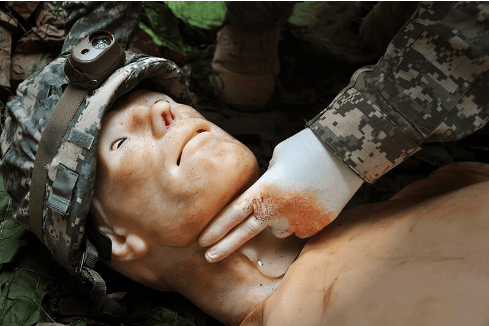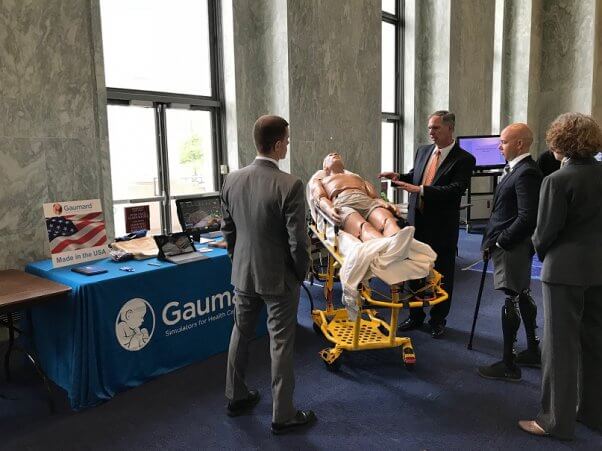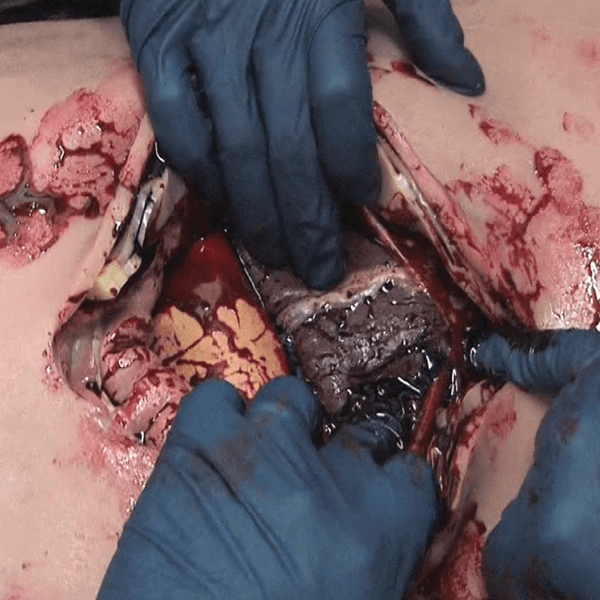Meet Hal, the Guy Who’s Getting Cut Open So That Animals Don’t
Ladies and gents, meet Hal. He’s smart, rugged, resilient, and devoted to his country—and he even saves animals. He’s also technically not an actual person.
Trauma HAL is a human trauma patient simulator created by simulation-technology company Gaumard, and he can provide troops with top-notch training on treating battlefield injuries.

As Gaumard explains:
“The Trauma HAL … is a rugged and resilient human trauma patient simulator manikin for teaching care on the battlefield. … Rush HAL® from the accident scene to the ER, to the ICU, while care providers diagnose and treat his condition using real monitoring and resuscitation equipment. Control HAL® at distances up to 300 meters and between rooms and floors of conventional buildings. HAL® smoothly transitions between physiologic states in response to commands from a wireless PC.”
The Coalition for Advanced Medical Training, of which PETA is a member, held an event on Capitol Hill so that lawmakers and military members could meet Hal and check out other exciting new simulation advancements that can better prepare medics and corps members to save lives—and that spare animals being shot, stabbed, cut open, and killed in trauma training.

Among these technologies is the “Cut Suit,” which was presented by its manufacturer, Strategic Operations. The suit is a human-worn surgical simulator that allows medical personnel to practice invasive procedures safely on real humans without causing them actual injuries. One thing is clear: Our society’s progress, both technological and moral, depends on a recognition that all sentient beings, human or otherwise, have a right to life and freedom from unnecessary suffering.

The event was held in collaboration with Rep. Brian Mast (R-Fla.), who is a disabled combat veteran and cosponsor of the Battlefield Excellence through Superior Training (BEST) Practices Act (H.R. 1243), which aims to replace animals in military trauma training with more effective, humane, and cost-efficient human-simulation technology. You can help by urging your representatives to support the lifesaving and bipartisan BEST Practices Act today.

